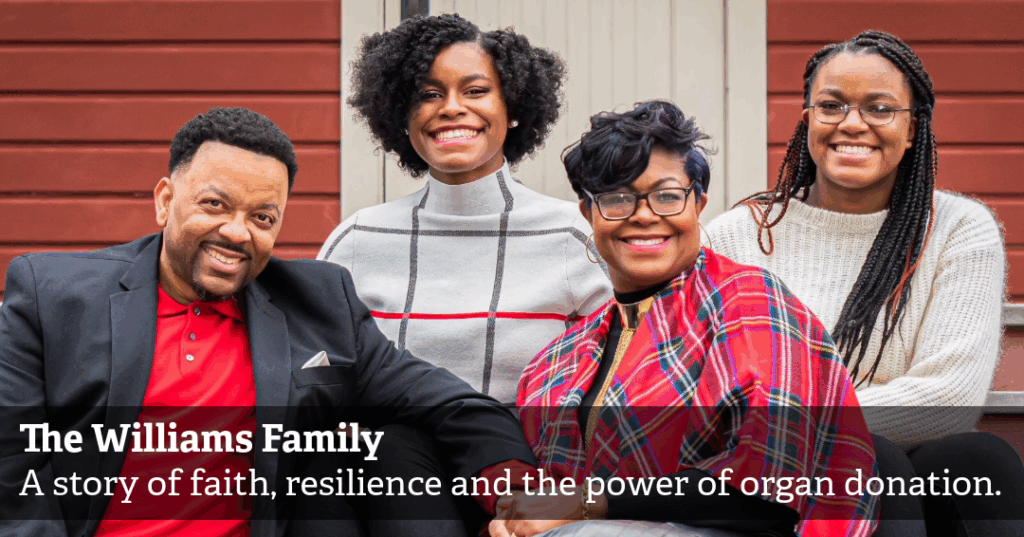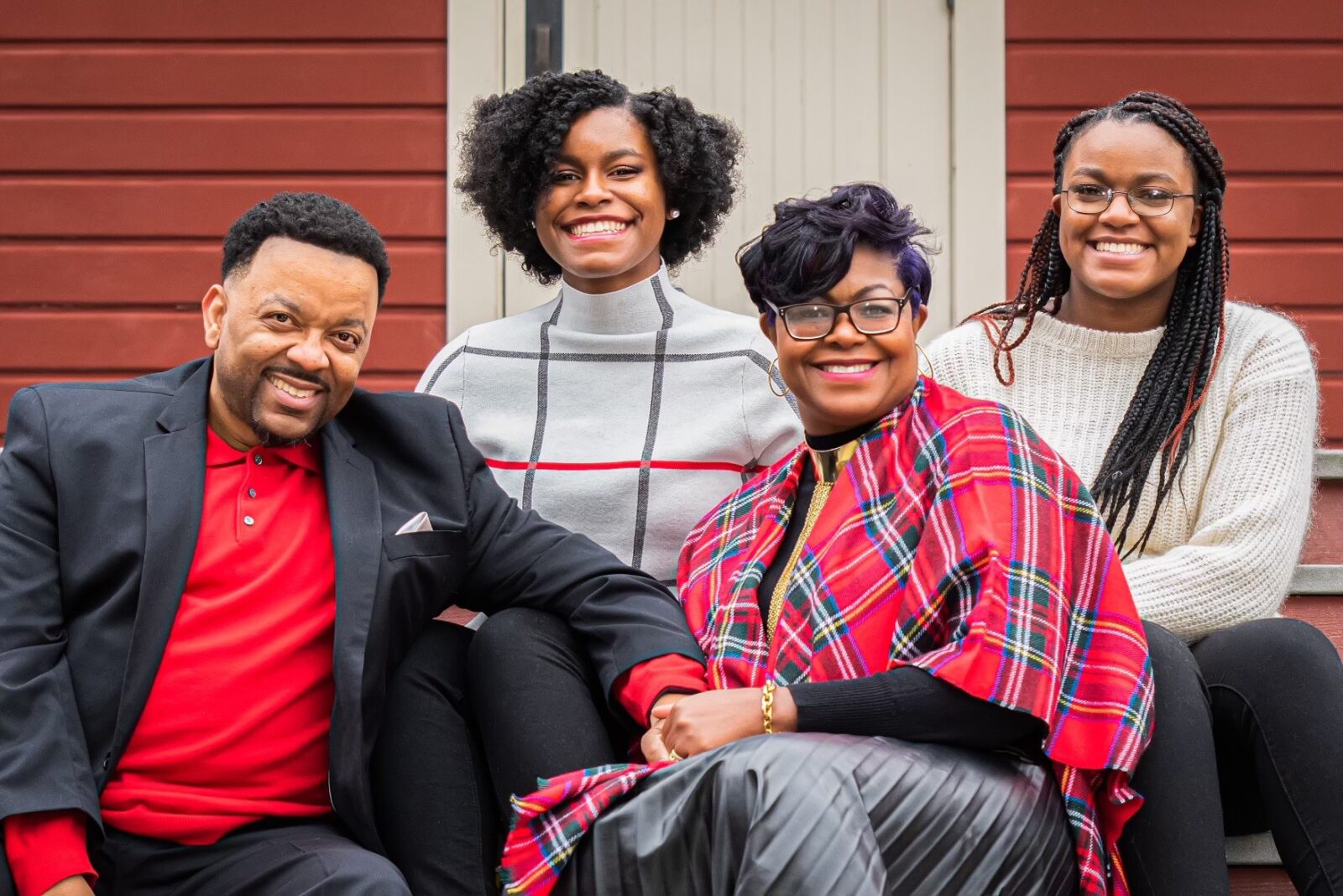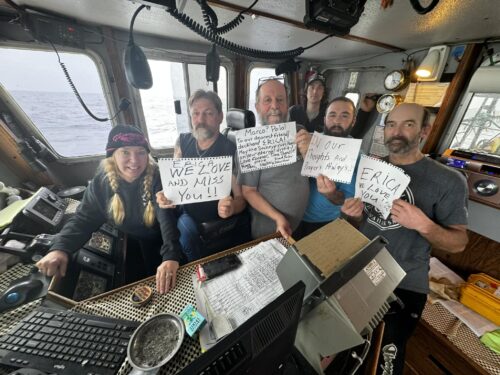When LaMont Williams was just 29, he was hit with a startling diagnosis: kidney disease.
Two years later and with a baby on the way with his wife, Felicia, he was on dialysis, fighting for the future of their family. Through the miracle of a kidney transplant, the couple’s first child was born 24 hours after Lamont’s life-saving surgery. His story is one of resilience, family, and faith, but also a reminder of the true impact organ donation has on all involved.

For LaMont, forming a habit of routine blood tests from a young age ultimately saved his life. As his case proves, early detection of kidney disease is crucial for effective management. It’s common to receive more than one kidney transplant in a lifetime. Years later, when LaMont’s transplanted kidney started to fail, he began the waiting process all over again, while undergoing lengthy dialysis treatments. He received the offer of a lifetime from a member of his church. A kind woman went through the testing process, was deemed a match, and she donated one of her kidneys to LaMont. It’s her kidney that is sustaining him today.
Dr. Andrew Brockenbrough, a nephrologist at Valley Medical Center in Renton, Wash., shares that “most people don’t have any symptoms until they’ve lost most of their kidney function.” This underscores the importance of regular check-ups with a primary care physician, including blood pressure monitoring and blood tests, for early diagnosis.
Dr. Brockenbrough noted that certain populations are at a higher risk: “African-Americans have a much higher risk of developing kidney disease than the average person,” explaining that about one in three African Americans has a kidney problem. Kidney disease is a significant health concern in the United States, affecting approximately 37 million Americans. Alarmingly, Dr. Brockenbrough stated that about 50% of people aren’t aware that they actually have kidney disease.
“Most people don’t have any symptoms until they’ve lost most of their kidney function.”
It’s stories like LaMont’s that motivate the teams at LifeCenter Northwest to save more lives by supporting and facilitating the organ donation process. The organization’s CEO and President, Santokh Gill, emphasized the critical nature of their work by stating that waiting patients “have exhausted every medical treatment that’s available and without an organ transplant, they will not live a full life.”
A crucial aspect of organ donation is the need for a diverse donor pool. Gill explains that having a diverse donor pool helps with that matching process because they want to give every person, regardless of race and ethnicity who’s waiting, an equal chance at getting a transplant. “One person has the power to save eight lives through organ donation, and most organ donors will save at least two to four lives,” Gill said. He encouraged everyone to learn more about donation and consider the legacy they wish to leave.
“A diverse donor pool helps with that matching process because they want to give every person, regardless of race and ethnicity who’s waiting, an equal chance at getting a transplant.”
LaMont’s story is one of resilience, faith, and the immeasurable power of organ donation. One donor can save up to eight lives and heal dozens more. Two selfless donors gave LaMont the chance to become a father, a pastor, and a source of hope for his community.
Registering as an organ donor is simple, but the impact lasts for generations. Learn more.






